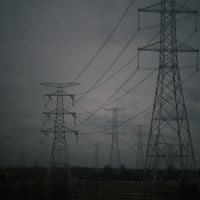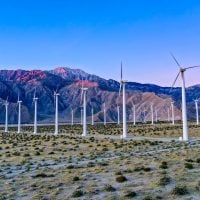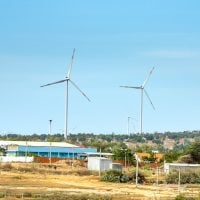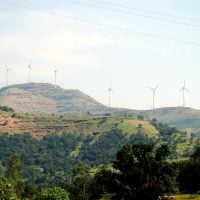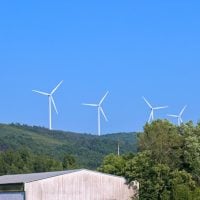Renewable energy has emerged as a cornerstone of sustainable development, offering a viable solution to the pressing challenges of climate change and energy security. As the world grapples with the consequences of fossil fuel dependency, the shift towards renewable sources such as solar, wind, hydroelectric, geothermal, and biomass is not just a trend but a necessity. This transition is not only about reducing greenhouse gas emissions but also about fostering economic growth, creating jobs, and ensuring energy access for all.
The urgency of this shift is underscored by the increasing frequency of extreme weather events and the depletion of natural resources, making it imperative for NGOs and other stakeholders to advocate for and invest in renewable energy initiatives. The role of NGOs in promoting renewable energy cannot be overstated. They serve as catalysts for change, mobilizing resources, raising awareness, and implementing projects that harness the power of nature.
By collaborating with governments, private sectors, and communities, NGOs can drive the adoption of clean energy technologies and practices. This article will explore various aspects of renewable energy, focusing on the impact of donor contributions, specific energy initiatives, and the importance of access to clean energy in developing countries. Through real-world examples and actionable strategies, we aim to inspire NGO professionals to engage more deeply in the renewable energy sector. Are You Working on Solar Innovation or Clean Energy Access? Join us to receive updates.
Key Takeaways
- Renewable energy is a sustainable and clean source of power that is crucial for addressing climate change and reducing reliance on fossil fuels.
- Donor contributions play a significant role in supporting renewable energy initiatives in developing countries, helping to improve access to clean energy and reduce carbon emissions.
- Solar power initiatives are gaining momentum globally, with increasing investments in solar panels and technology to harness the power of the sun.
- Wind energy projects are being developed in various regions, utilizing wind turbines to generate electricity and reduce greenhouse gas emissions.
- Hydroelectric power investments are crucial for providing renewable energy and supporting economic development in many countries, especially those with access to rivers and water resources.
The Impact of Donor Contributions
Donor contributions play a pivotal role in the advancement of renewable energy projects worldwide. Philanthropic organizations, government agencies, and international financial institutions provide essential funding that enables NGOs to implement innovative solutions in energy generation and distribution. These contributions can take various forms, including grants, low-interest loans, and technical assistance, all aimed at reducing the financial barriers that often hinder the deployment of renewable technologies.
For instance, the Green Climate Fund has been instrumental in financing projects that promote sustainable energy practices in developing nations, demonstrating how targeted funding can lead to significant environmental and social benefits. Moreover, donor contributions often come with the added advantage of fostering partnerships between NGOs and local communities. When donors invest in renewable energy projects, they not only provide financial resources but also encourage collaboration among stakeholders.
This collaborative approach ensures that projects are tailored to meet the specific needs of communities while promoting local ownership and sustainability. For example, an NGO working on solar energy initiatives in rural Africa may partner with local governments and community organizations to design a project that aligns with local priorities. Such partnerships enhance the effectiveness of donor contributions and create a multiplier effect that amplifies the impact of investments in renewable energy.
Solar Power Initiatives

Solar power has gained significant traction as one of the most accessible and scalable forms of renewable energy. With advancements in technology and decreasing costs, solar initiatives have become a focal point for many NGOs aiming to provide clean energy solutions. One notable example is the Solar Sister initiative, which empowers women entrepreneurs in Africa by providing them with solar products to sell in their communities.
This model not only addresses energy poverty but also promotes gender equality and economic empowerment. By training women to become solar entrepreneurs, Solar Sister creates a sustainable business model that benefits both individuals and communities. In addition to grassroots initiatives, larger-scale solar power projects have also made headlines for their transformative impact.
The Noor Ouarzazate Solar Complex in Morocco is one such example, representing one of the largest solar power plants in the world. Funded by a combination of public and private investments, this project has significantly increased Morocco’s renewable energy capacity while providing thousands of jobs during its construction phase. NGOs can learn from such large-scale projects by advocating for similar investments in their regions, emphasizing the potential for job creation and economic development alongside environmental benefits.
Wind Energy Projects
Wind energy is another critical component of the renewable energy landscape, offering a clean alternative to fossil fuels while generating substantial economic opportunities. NGOs have been at the forefront of promoting wind energy projects that not only contribute to reducing carbon emissions but also enhance local economies through job creation and infrastructure development. For instance, the Global Wind Energy Council (GWEC) has been instrumental in advocating for policies that support wind energy deployment worldwide.
Their efforts have led to increased investments in wind farms across various countries, showcasing how advocacy can lead to tangible results. One successful wind energy project is the Lake Turkana Wind Power project in Kenya, which is one of Africa’s largest wind farms. This initiative has not only provided clean electricity to thousands of households but has also created jobs for local communities during both construction and operation phases.
NGOs can draw inspiration from such projects by emphasizing the dual benefits of wind energy: environmental sustainability and economic growth. By engaging with local stakeholders and advocating for supportive policies, NGOs can help facilitate similar wind energy initiatives that align with community needs.
Hydroelectric Power Investments
Hydroelectric power remains one of the most established forms of renewable energy, providing a significant portion of global electricity generation. However, its implementation often comes with challenges related to environmental impact and community displacement. NGOs play a crucial role in advocating for responsible hydroelectric projects that prioritize ecological sustainability and social equity.
For example, organizations like International Rivers work tirelessly to protect rivers and promote sustainable water management practices while ensuring that local communities are consulted and involved in decision-making processes. One notable case is the Belo Monte Dam project in Brazil, which faced significant opposition from indigenous groups and environmental activists due to its potential impact on local ecosystems and communities. NGOs have been pivotal in raising awareness about such issues, pushing for more transparent processes and better compensation for affected populations.
By highlighting these challenges, NGOs can advocate for hydroelectric investments that are not only economically viable but also socially responsible.
Geothermal Energy Support

Geothermal energy is often overlooked in discussions about renewable resources, yet it offers a reliable and consistent source of power with minimal environmental impact. NGOs can play a vital role in promoting geothermal projects by raising awareness about their benefits and advocating for investment in this underutilized resource. For instance, organizations like the Geothermal Energy Association (GEA) work to educate stakeholders about geothermal technology’s potential while supporting policies that encourage its development.
One successful example is the Olkaria Geothermal Power Station in Kenya, which has significantly contributed to the country’s electricity supply while reducing reliance on fossil fuels. The project has not only provided clean energy but has also created jobs and stimulated local economic growth. NGOs can leverage such success stories to advocate for similar geothermal initiatives in other regions, emphasizing their potential to provide stable energy sources while minimizing environmental footprints.
Biomass and Bioenergy Funding
Biomass and bioenergy represent another promising avenue for renewable energy development, particularly in rural areas where agricultural waste can be converted into usable energy. NGOs have an essential role in promoting biomass projects that not only provide clean energy but also contribute to waste management and agricultural sustainability. For example, organizations like Bioenergy International work with farmers to develop biogas systems that convert organic waste into energy while improving soil health through nutrient recycling.
One notable project is the use of rice husks for bioenergy production in Southeast Asia. By converting agricultural waste into bioenergy, farmers can reduce their reliance on traditional fuels while generating additional income from waste materials that would otherwise be discarded. NGOs can support such initiatives by providing technical assistance and facilitating access to funding sources that enable farmers to invest in bioenergy technologies.
Access to Clean Energy in Developing Countries
Access to clean energy remains a significant challenge in many developing countries, where millions still rely on traditional biomass or kerosene for cooking and lighting. NGOs are uniquely positioned to address this issue by implementing innovative solutions that promote clean energy access at the grassroots level. For instance, organizations like Barefoot College have trained women from rural communities to become solar engineers, enabling them to install solar systems in their villages while creating local job opportunities.
In addition to grassroots initiatives, NGOs can advocate for policy changes that support clean energy access on a larger scale. By engaging with governments and international organizations, they can push for investments in infrastructure that facilitate renewable energy deployment in underserved areas. For example, advocating for microgrid systems powered by solar or wind can provide reliable electricity to remote communities while reducing dependence on fossil fuels.
Donor Partnerships and Collaborations
Building strong partnerships with donors is essential for NGOs seeking to expand their impact in the renewable energy sector. Collaborations with philanthropic organizations, government agencies, and private sector actors can provide critical funding and resources needed to implement successful projects. For instance, partnerships between NGOs and international development banks have led to significant investments in renewable energy infrastructure across various regions.
Moreover, effective communication with donors is crucial for securing ongoing support. NGOs should focus on demonstrating their impact through data-driven reports and success stories that highlight the tangible benefits of their projects. By showcasing how donor contributions translate into real-world outcomes—such as increased access to clean energy or improved livelihoods—NGOs can strengthen their relationships with donors and attract additional funding for future initiatives.
Innovations in Renewable Energy Technology
The renewable energy sector is characterized by rapid technological advancements that continue to reshape how we generate and consume energy. NGOs must stay informed about these innovations to effectively advocate for their adoption within communities. For example, developments in battery storage technology have made it possible to store excess solar or wind energy for use during periods of low generation, enhancing grid reliability.
Additionally, emerging technologies such as floating solar panels or offshore wind farms present new opportunities for expanding renewable energy capacity without occupying valuable land resources. NGOs can play a crucial role in promoting these innovations by conducting research, sharing best practices, and facilitating knowledge exchange among stakeholders. By championing cutting-edge technologies, NGOs can help accelerate the transition towards a more sustainable energy future.
Future Outlook for Global Renewable Energy Access
The future outlook for global renewable energy access is promising yet fraught with challenges that require concerted efforts from all stakeholders involved. As countries commit to ambitious climate goals under international agreements like the Paris Accord, there is an increasing recognition of the need for sustainable energy solutions that prioritize equity and inclusivity. NGOs will continue to play a vital role in advocating for policies that support renewable energy deployment while ensuring marginalized communities are not left behind.
Moreover, as technology continues to evolve and costs decrease further, there will be unprecedented opportunities for scaling up renewable energy initiatives worldwide. The key will be fostering collaboration among governments, private sectors, donors, and civil society organizations to create an enabling environment for investment in clean energy solutions. By leveraging their unique position as intermediaries between communities and decision-makers, NGOs can drive meaningful change towards achieving universal access to clean energy by 2030.
In conclusion, renewable energy represents a pathway towards a sustainable future that benefits both people and the planet. Through strategic partnerships, innovative projects, and advocacy efforts, NGOs can play an instrumental role in advancing this transition while ensuring that no one is left behind on the journey towards a cleaner and more equitable world.


